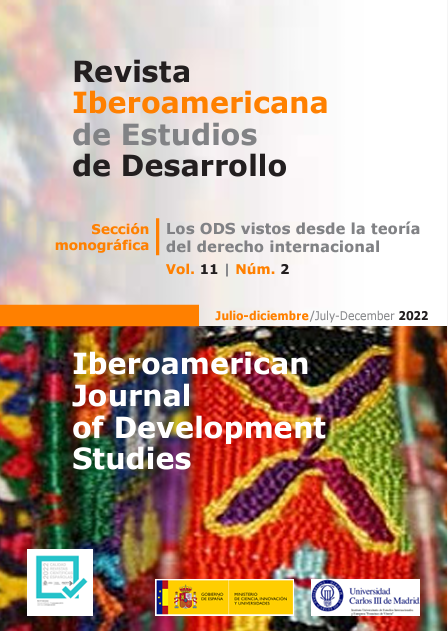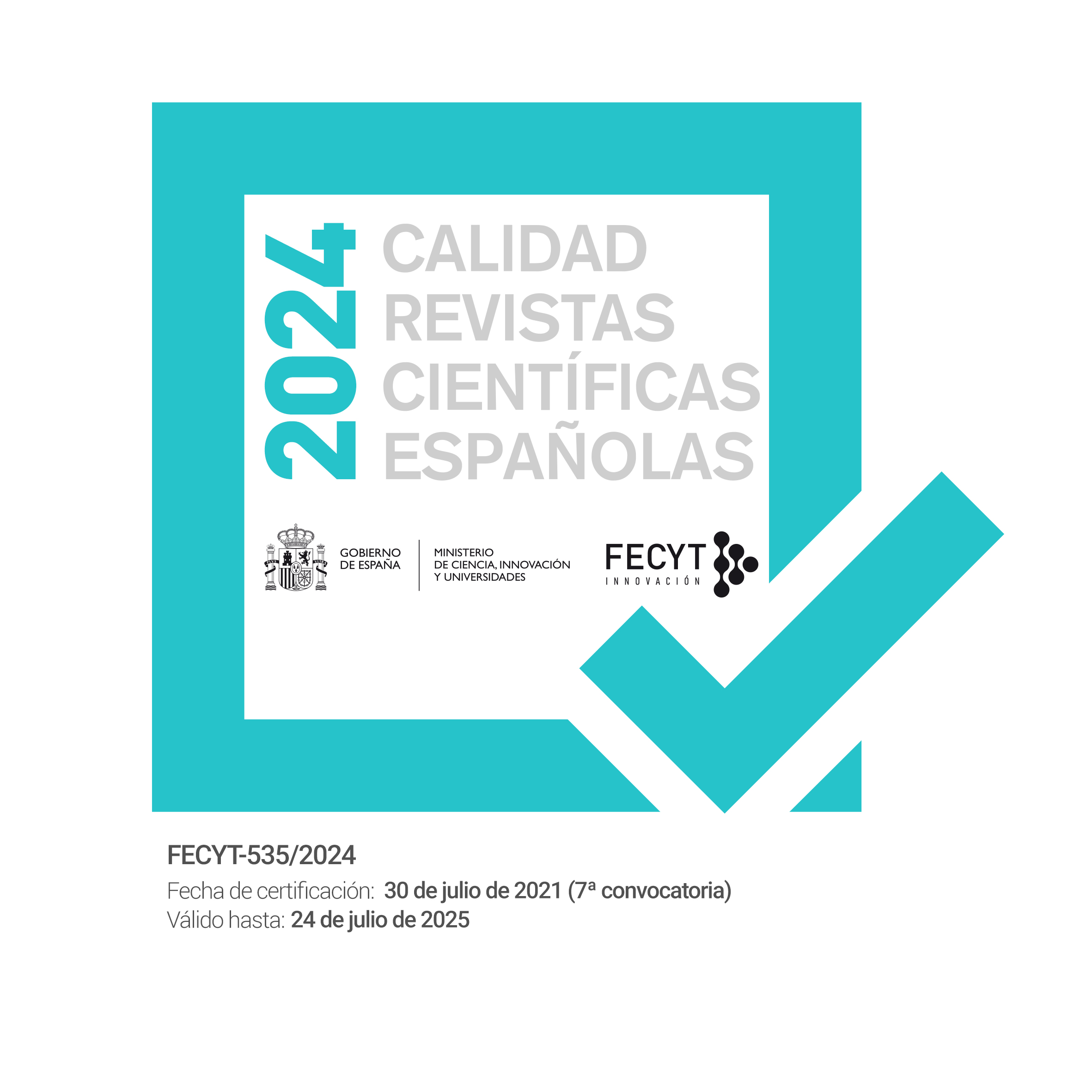The liability of multinational companies through transnational litigation: comparative study of highlighted cases
DOI:
https://doi.org/10.26754/ojs_ried/ijds.676Keywords:
corporations, human rights, environment, transnational litigationAbstract
Transnational litigation on business and human rights has grown exponentially in recent years and is playing a central role in the fight against impunity for serious human rights violations and environmental damage. We are witnessing a paradigm shift in the fight against corporate impunity, in which access to justice for victims is prioritized; also, in cases where it is not guaranteed before the judicial headquarters of the place where the mentioned violations were perpetrated. In our study, it is aimed to develop a critical and comparative legal analysis of the most recent and important jurisprudential developments and, particularly, but not in exclusive, from the Nevsun, Nestlé, Shell, and Vedanta cases, even the one that concerns the rights of the Waorani indigenous community.
Downloads
References
ABA (2021). Balancing Buyer and Supplier Responsibilities. Model Contract Clauses to Protect Workers in International Supply Chains. https://www.americanbar.org/groups/human_rights/business-human-rights-initiative/contractual-clauses-project/ , acceso 13 de abril de 2021.
ACEVES WJ (2020). Nestlé & Cargill v. Doe Series: Judicial Activism, Corporate Exceptionalism, and the Puzzlement of Nestlé v. Doe. https://www.justsecurity.org/73794/nestle-cargill-v-doe-series-judicial-activism-corporate-exceptionalism-and-the-puzzlement-of-nestle-v-doe/ , acceso 13 de abril de 2021.
AKAKPORO EY, LADELE LO, FEICIA OI (2018). Legal Redress for Pollution Arising for Petroleum Exploration in Nigeria. https://www.academia.edu/36622386/LEGAL_REDRESS_FOR_POLLUTION_ARISING_FROM_PETROLEUM , acceso 15 de abril de 2021.
AMBROZ JS (2021). The 1.5 Million Child Slaves Behind Your Chocolate Bar. https://www.dcreport.org/2021/02/23/child-slaves-the-1-5-million-behind-your-chocolate-bar/ , acceso 10 de abril de 2021.
ANDERSON LD (2020). An Exception to Jesner: Preventing U.S. Corporations and Their Subsidiaries from Avoiding Liability for Harms Caused Abroad, Emory International Law Review 34:997-1032.
BAXI U (2020). Nevsun: A Ray of Hope in a Darkening Landscape? Business and Human Rights Journal 5:241-251.
BRIGHT C (2019). The civil Liability of the Parent Company for the Acts or Omissions of its Subsidiary: The Example of the Shell Cases in the UK and in the Netherlands. En: Bonfanti A (ed.). Business and Human Rights in Europe. Routledge, Londres, pp. 212-222.
BRIGHT C, MARULLO MC, ZAMORA CABOT FJ (2021). Private international law aspects of the Second Revised Draft of the legally binding instrument on business and human rights. Nederlands Internationaal Privaatrecht 21/1:35-52.
CAMARERO MV (2018). Acaparamiento de tierras y aguas: impacto sobre los pueblos indígenas y sus convicciones religiosas. Anuario de Derecho Eclesiástico del Estado 34:23-73.
DE SCHUTTER O, RAMASASTRY A, TAYLOR MB, THOMPSON RC (2012). Human Rights Due Diligence: The Role of States, International Corporate Accountability Roundtable, European Coalition for Corporate Justice and Canadian Network on Corporate Accountability. https://humanrightsinbusiness.eu/wp-content/uploads/2015/05/De-Schutter-et-al.-Human-Rights-Due-Diligence-The-Role-of-States.pdf , acceso 13 de octubre de 2021.
DIAGO MP (2020). Minerales y diamantes de conflicto: mecanismo de control y diligencia debida en tiempos de ODS. Cuadernos Europeos de Deusto 63:153-182.
DODGE WS (2020). Supreme Court of Canada Recognizes Corporate Liability for Human Rights Purposes. https://www.justsecurity.org/69349/supreme-court-of-canada-recognizes-corporate-liability-for-human-rights-violations/ , acceso 9 de abril de 2021.
DURÁN AYAGO A (2020). Lex Damni vs. Lex Societatis en la aplicación de la ley francesa del deber de vigilancia de las empresas matrices sobre sus filiales: crónica de un diálogo necesario. Cuadernos Europeos de Deusto 63:183-206.
ENGLISH R (2021). Parent Company Owes Duty of Care in Transnational Cases-Hague Court of Appeal. https://ukhumanrightsblog.com/2021/03/01/parent-company-owes-duty-of-care-in-transnational-cases-hague-court-of-appeal/ , acceso 19 de abril de 2021.
ESTEVE JE (2018). The Impunity Veil of Transnational Corporations: The Judicial Saga of Bhopal. En: Marullo MC, Zamora FJ (eds.). Empresas y Derechos Humanos, Temas Actuales. Scientifica, Nápoles, pp. 249-276.
FONT-MAS M (2020). Los obstáculos de una demanda civil de responsabilidad transnacional por violación de derechos humanos: desde la perspectiva del titular del derecho. Cuadernos Europeos de Deusto 63:113-151.
GARCÍA L, IGLESIAS D (2018). La Regla de la Ubicuidad y la Responsabilidad Ambiental Corporativa. En: Marullo MC, Zamora FJ (eds.). Empresas y Derechos Humanos, Temas Actuales. Scientifica, Nápoles, pp. 115-156.
GUAMÁN A (2018). Diligencia debida en derechos humanos y empresas transnacionales: de la ley francesa a un instrumento jurídicamente vinculante sobre empresas y derechos humanos. Lex Social, Revista jurídica de los derechos sociales 8-2:216-250.
HUMPHREVILLE AA (2015). If the Question is Chocolate-Related, the Answer is Always Yes. Why Doe v. Nestlé Reopens the Door for Corporate Liability of U.S. Corporations Under the Alien Tort Statute. American University Law Review 65:191-238.
HURTADO JJ (2020). Responsabilidad Civil Corporativa por Violaciones del Derecho Internacional Consuetudinario. Nota sobre la Sentencia del Tribunal Supremo del Canadá en el Caso Nevsun. Revista Electrónica de Estudios Internacionales 40, 23 pp.
IGLESIAS MA (2018). El asunto Ogiek y la Corte Africana de Derechos Humanos y de los Pueblos: reforzando los derechos de las comunidades indígenas en África. Revista Latinoamericana de Derechos Humanos 29:83-114.
IRA (2021). Child Slaves Who Were Trafficked and Forced to Harvest Cocoa in Côte d’Ivoire Sue the Cocoa Companies that Enslaved Them: Nestlé, Cargill, Mars, Mondelez, Hershey, Barry Callebaut, and Olam. http://www.iradvocates.org/press-release/nestle/press-release-child-slaves-who-were-trafficked-and-forced-harvest-cocoa-cote-d , acceso 15 de abril de 2021.
KOHL U (2018). Territoriality and Globalization. En: Allen S, Costelloe D, Fitzmaurice M, Gragl P, Guntrip E (eds.). Oxford Handbook on Jurisdiction in International Law. Oxford University Press, Oxford.
LINDT A (2020). Transnational Human Rights Litigation, A Means of Obtaining Effective Remedy Abroad? Journal of Legal Anthropology 4:57-77.
MARTÍN-ORTEGA O, O’BRIEN CM (2019). Public Procurement and Human Rights, Opportunities, Risks and Dilemmas for the State as Buyer. Elgar Publishing, Cheltenham, Glos.
MARULLO MC (2020). Recientes desarrollos en los litigios transnacionales empresas y Derechos Humanos: el caso Kiobel III. Cuadernos Europeos de Deusto 63:57-80.
MOXLEY C (2020). Nestlé & Cargill v. Doe Series: Corporate Liability, Child Slavery, and the Chocolate Industry- A Preview of the Case. https://www.justsecurity.org/73387/nestle-cargill-v-doe-series-corporate-liability-child-slavery-and-the-chocolate-industry-a-preview-of-the-case/ , acceso 15 de abril de 2021.
MUÑOZ A, SALES L (2018). Las Leyes Anti Esclavitud: Primeras Respuestas Judiciales. En: Marullo MC, Zamora FJ (eds.). Empresas y Derechos Humanos, Temas Actuales. Scientifica, Nápoles, pp. 277-303.
NALEGACH C, ASTROZA P (2020). La necesidad de una democracia ambiental en América Latina: el Acuerdo de Escazú. Documentos de Trabajo 40. Fundación Carolina, Madrid.
NELSON JS (2021). The Management Case for Inclusionary Corporate Purpose, The CLS Blue Skye Blog, 16 de marzo. https://clsbluesky.law.columbia.edu/2021/03/16/the-management-case-for-inclusionary-corporate-purpose/ , acceso 18 de marzo de 2021.
OJEDA E (2021). Transnational Corporate Liability Litigation and Access to Environmental Justice: The Vedanta v. Lungowe Case. London School of Economics Law Review 6:223-248.
OVEJERO AM (2020). Derechos Humanos y Empresa: balance y situación actual sobre el cumplimiento de los tres pilares. Tirant Lo Blanch, Valencia.
OXFORD RESEARCH ENCYCLOPEDIA OF AFRICAN HISTORY (2020). Cocoa and Child Slaves in West Africa. https://oxfordre.com/africanhistory/view/10.1093/acrefore/9780190277734.001.0001/acrefore-9780190277734-e-816?rskey=fRiPq1&result=13 , acceso 15 de abril de 2021.
PIGRAU A (2014). The Texaco-Chevron Case in Ecuador, Law and Justice in the Age of Globalization, Revista Catalana de Dret Ambiental 5 (1), 43 pp.
QUINTANA K, FLORES R (2017). Los derechos de los pueblos indígenas. Una visión desde el sistema interamericano de protección de los derechos humanos. Instituto de Estudios Constitucionales del Estado de Querétaro, México.
REDECOPP A (2020). With Power Comes Responsibility: Incremental Progress in Canada on Parent Company Liabilty. Journal of Leadership, Accountability and Ethics 17:18-42.
REGUART N (2018). Business, Indigenous’ Peoples Rights and Security in the Case Law of the Inter-American Court of Human Rights, Business and Human Rights Journal 00, 22 pp.
ROORDA L (2021). Lowering the Bar (In a Good Way): the UK Supreme Court Decision in Okpabi v. Shell. https://rightsasusual.com/?p=1395 , acceso 19 de abril de 2021.
SALES L, MARULLO MC (2020). Informes de sostenibilidad y planes de vigilancia: explorando nuevos caminos para luchar contra la impunidad empresarial. Cuadernos Europeos de Deusto 63:207-235.
SHAO X (2021). Environmental and Human Rights Counterclaims in International Investments Arbitration: at the Crossroads of Domestic and International Law. Journal of International Economic Law 24:1-23.
SOSA M (2020). Modern Challenges Within the Law of State Responsibility for Human Rights Violations Commited by Non-State Actors: Special Focus on Business Activity. Dirittifondamentaly 3:449-467.
TIRUNEH W (2021). Holding the Parent Company Liable for Human Rights Abuses Commited Abroad: The Case of Four Nigerian Farmers and Milieudefensie v. Shell. https://www.ejiltalk.org/holding-the-parent-company-liable-for-human-rights-abuses-committed-abroad-the-case-of-the-four-nigerian-farmers-and-milieudefensie-v-shell/ , acceso 19 de abril de 2021.
VAN HO T (2020). Note, Vedanta Resources PLC and Another v. Lungowe and Another, 2019 UKSC 20. American Journal of International Law 114:110-116.
WEN S, ZHAO J (2020). The Bumpy Road of Home States’ Regulation of Globalized Businesses-Legal and Institutional Disruptions to Supply Chain Disclosure Under the Modern Slavery Act. Catholic University Law Review 69:125-162.
WILKINSON LE (2019). Piercing the Chocolate Veil: Ninth Circuit Allows Child Cocoa Slaves to Sue Under the Alien Tort Statute in Doe v. Nestlé USA. Villanova Law Review Online: Tolle Lege 63:20-46.
ZAMORA FJ (2016a). Desarrollo Sostenible y Empresas Multinacionales: Un Estudio sobre los Acaparamientos de Tierra en Clave de Responsabilidad, Anuario de los Cursos de Derechos Humanos de Donostia-San Sebastián XV:255-282.
ZAMORA FJ (2016b). Las Industrias Canadienses y su Impacto sobre los Derechos Humanos: Esperando a Trudeau. Papeles el Tiempo de los Derechos 17, 7 pp.
ZAMORA FJ (2020). Acceso a la Justicia y derechos humanos: importante decisión del Tribunal Supremo del Reino Unido en el caso Vedanta v. Lungowe. Cuadernos Europeos de Deusto 63:33-56.
ZAMORA FJ (2021, en prensa). El caso Doe v. Nestlé ante el Tribunal Supremo de los Estados Unidos: ¿culmina el largo adiós del Alien Tort Statute? XXIX Jornadas AEPDIRI.
ZAMORA FJ, MARULLO MC (2019). La Global Magnitski Act de los Estados Unidos: sanciones internacionales contra corrupción y violaciones graves de los derechos humanos. Rivista Ordine Internazionale e Diritti Umani 2019(3):536-549.
Downloads
Published
How to Cite
Issue
Section
License
Copyright (c) 2022 Maria Chiara Marullo, José Elías Esteve-Moltó, Francisco Javier Zamora-Cabot

This work is licensed under a Creative Commons Attribution-NonCommercial-NoDerivatives 4.0 International License.








